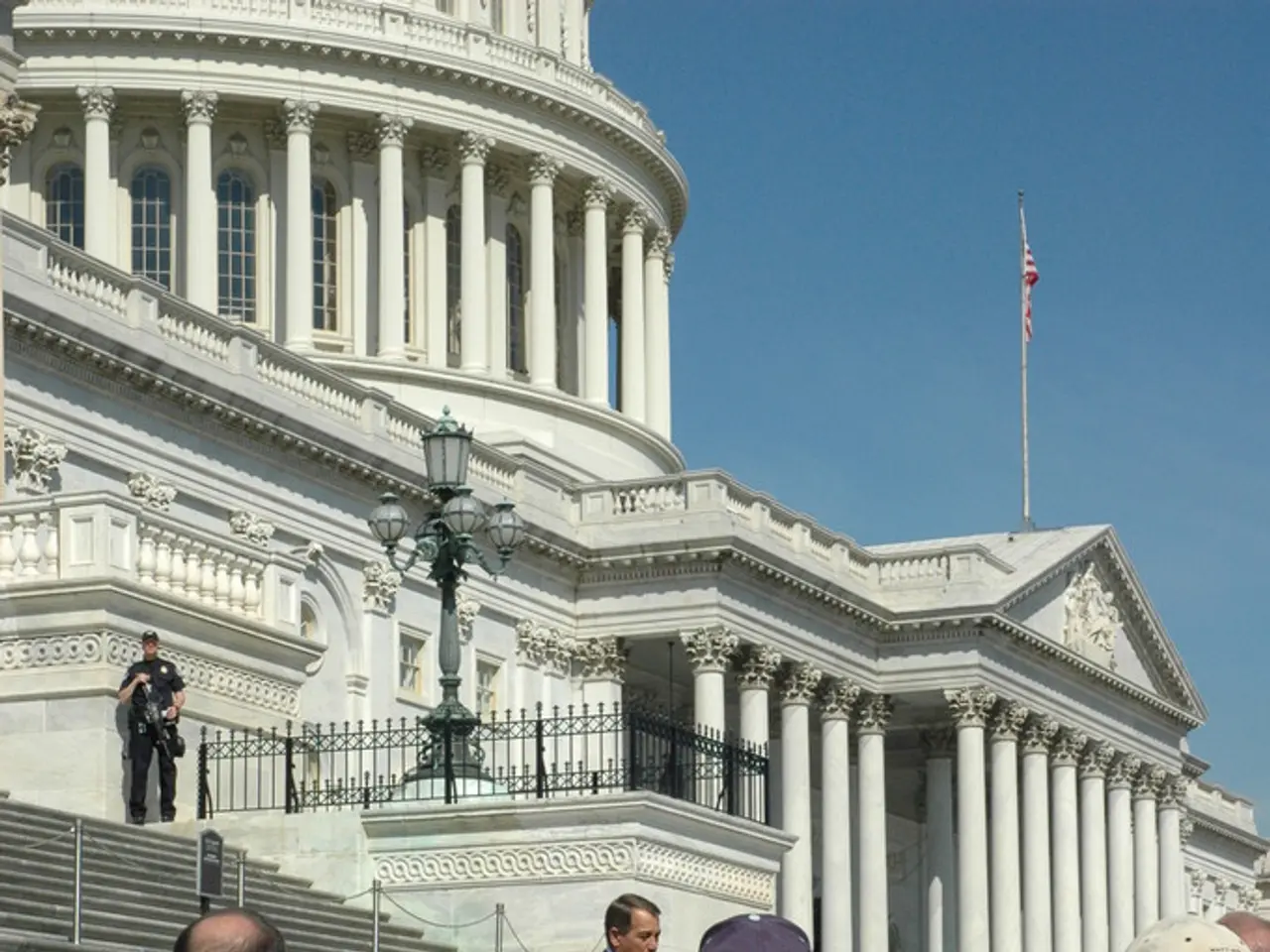Military units of the National Guard conducted a demonstration of military strength in response to potential protests surrounding immigration raids, according to a general's testimony.
=================================================================================
In the heart of Los Angeles, a controversy has been brewing over the deployment of National Guard troops and U.S. Marines in a public park with a large immigrant population. The operation at MacArthur Park, which took place on July 7, has sparked a legal debate about the Posse Comitatus Act (PCA) and the role of military forces in domestic affairs.
The Posse Comitatus Act, a law passed in 1878, generally prohibits active-duty military, including federalized National Guard troops, from engaging in domestic law enforcement activities such as arrests or searches. The Act is intended to prevent the federal military from enforcing civil law.
The recent operation at MacArthur Park has raised questions about whether the deployment of federalized National Guard soldiers and Marines for immigration enforcement operations violated the PCA.
The troops were allegedly set up as a show of force against undocumented people and those protesting the Trump administration's immigration crackdown. They were accused of engaging in militaristic displays of force, blocking access to public streets, setting up roadblocks and perimeters that restricted civilian movement, and even detaining civilians.
However, the Trump administration argues that the troops were not enforcing law themselves but were protecting federal property and federal agents involved in enforcement. They were federalized under Title 10, authorized when there is a rebellion or danger of a rebellion or inability of the President to enforce laws.
California, on the other hand, challenges this argument, claiming the military was in fact directly supporting law enforcement by securing perimeters, detaining civilians, and assisting arrests—activities seen as active law enforcement roles prohibited by the PCA.
The courts are now evaluating the extent and nature of military involvement to determine legality under the PCA. The interpretation hinges on whether National Guard and Marine troops deployed under federal Title 10 status engaged in prohibited law enforcement or were lawfully protecting federal interests.
The dual state-federal control and operational use of the National Guard, especially in situations like D.C. where the Guard is always federalized under presidential command, further complicates PCA interpretation and raises constitutional and policy concerns.
This legal debate is a significant development in the ongoing discourse about the role of the military in domestic affairs and the limits of the Posse Comitatus Act. The trial will determine if the Trump administration violated the Act by using military troops to illegally enforce civilian law in California.
[1] Posse Comitatus Act: A Brief Overview, Congressional Research Service, 2019. [2] Posse Comitatus Act and the Use of the National Guard: The Limits of Federal Control, Congressional Research Service, 2018. [3] Lawsuit Challenges Trump Administration's Use of Troops in California for Immigration Enforcement, American Civil Liberties Union, 2019. [4] Posse Comitatus Act and the Use of the Armed Forces for Law Enforcement Purposes, Congressional Research Service, 2018. [5] The Constitutionality of the Use of the Military in Domestic Law Enforcement, Congressional Research Service, 2018.
Read also:
- Massive 8.8 earthquake hits off the coast of Russia's Kamchatka Peninsula, prompting Japan to issue a tsunami alert.
- Court petitions to reverse established decision on same-sex marriage legalization
- Proposed Standardization of Food Labeling Laws Among Member States by the Commission
- Current News: AfD Achieves 26% - Union Dips to Laschet's Level







